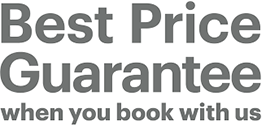
United States Holocaust Memorial Museum
The Visitor’s Guide and Permanent Exhibition Guide may be helpful to you in planning your visit to the Museum. On the day of your visit, please also check at the Information Desk, in the center of the Hall of Witness on the First Floor, for a listing of daily program offerings.
Find out more about planning a group visit.
CONTACT INFORMATION
United States Holocaust Memorial Museum
100 Raoul Wallenberg Place, SW
Washington, DC 20024-2126
Main telephone: (202) 488-0400
TTY: (202) 488-0406
MUSEUM HOURS
Closed only on Yom Kippur (September 18, 2010) and Christmas Day (December 25)
Exhibitions: 10 a.m. – 5:20 p.m.
Library and Archives: 10 a.m. – 5 p.m., Monday to Friday (Closed all Federal Holidays)
Pass Desk: 10 a.m. – 4:30 p.m.
Museum Café: 8:30 a.m. – 4:30 p.m.
Museum Shop: 10 a.m. – 5:20 p.m.
ADMISSION AND TICKETING
Admission to the Museum is free
About the Museum
A living memorial to the Holocaust, the United States Holocaust Memorial Museum inspires citizens and leaders worldwide to confront hatred, promote human dignity, and prevent genocide. A public-private partnership, federal support guarantees the Museum’s permanence, and its far-reaching educational programs and global impact are made possible by donors nationwide.
Located among our national monuments to freedom on the National Mall, the Museum provides a powerful lesson in the fragility of freedom, the myth of progress, the need for vigilance in preserving democratic values. With unique power and authenticity, the Museum teaches millions of people each year about the dangers of unchecked hatred and the need to prevent genocide. And we encourage them to act, cultivating a sense of moral responsibility among our citizens so that they will respond to the monumental challenges that confront our world. Today we face an alarming rise in Holocaust denial and antisemitism—even in the very lands where the Holocaust happened—as well as genocide and threats of genocide in other parts of the world. All of this when we are soon approaching a time when Holocaust survivors and other eyewitnesses will no longer be alive.
The Museum works closely with many key segments of society who will affect the future of our nation. Professionals from the fields of law enforcement, the judiciary and the military, as well as diplomacy, medicine, education and religion study the Holocaust, with emphasis on the role of their particular professions and the implications for their own responsibilities. These programs intensify their sense of commitment to the core values of their fields and their roles in the protection of individuals and society.
In addition to its leadership training programs, the Museum sponsors on-site and traveling exhibitions, educational outreach, Web site, campus outreach and Holocaust commemorations, including the nation’s annual observance in the U.S. Capitol. Our Center for Advanced Holocaust Studies works to ensure the continued growth and vitality of the field of Holocaust studies. As a living memorial to the Holocaust, we work to prevent genocide in the future through our Academy for Genocide Prevention which trains foreign policy professionals. Working with Holocaust survivors and an array of organizations, the Museum is a leader in galvanizing attention to the crisis in Sudan.
Since its dedication in 1993, the Museum has welcomed nearly 30 million visitors, including more than 9 million school children and 85 heads of state. Today 90 percent of the Museum’s visitors are not Jewish, and our Web site, the world’s leading online authority on the Holocaust, had 25 million visits in 2008 from an average of 100 different countries daily. With hundreds of thousands of online visitors from countries with majority Muslim populations, translating our Web site into Arabic and Farsi is a top priority; already, portions are available in more than 20 languages. For more information, please visit www.ushmm.org.
(United States Holocaust Memorial Museum - Homepage link)
